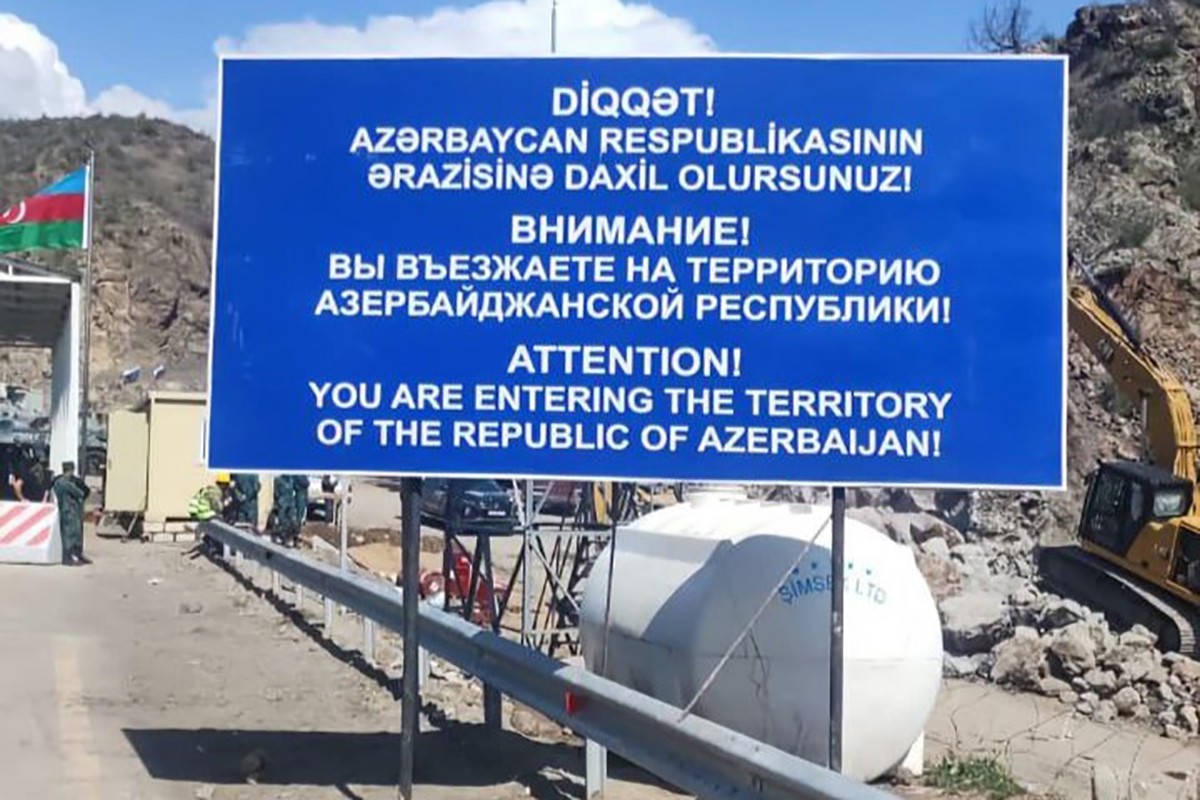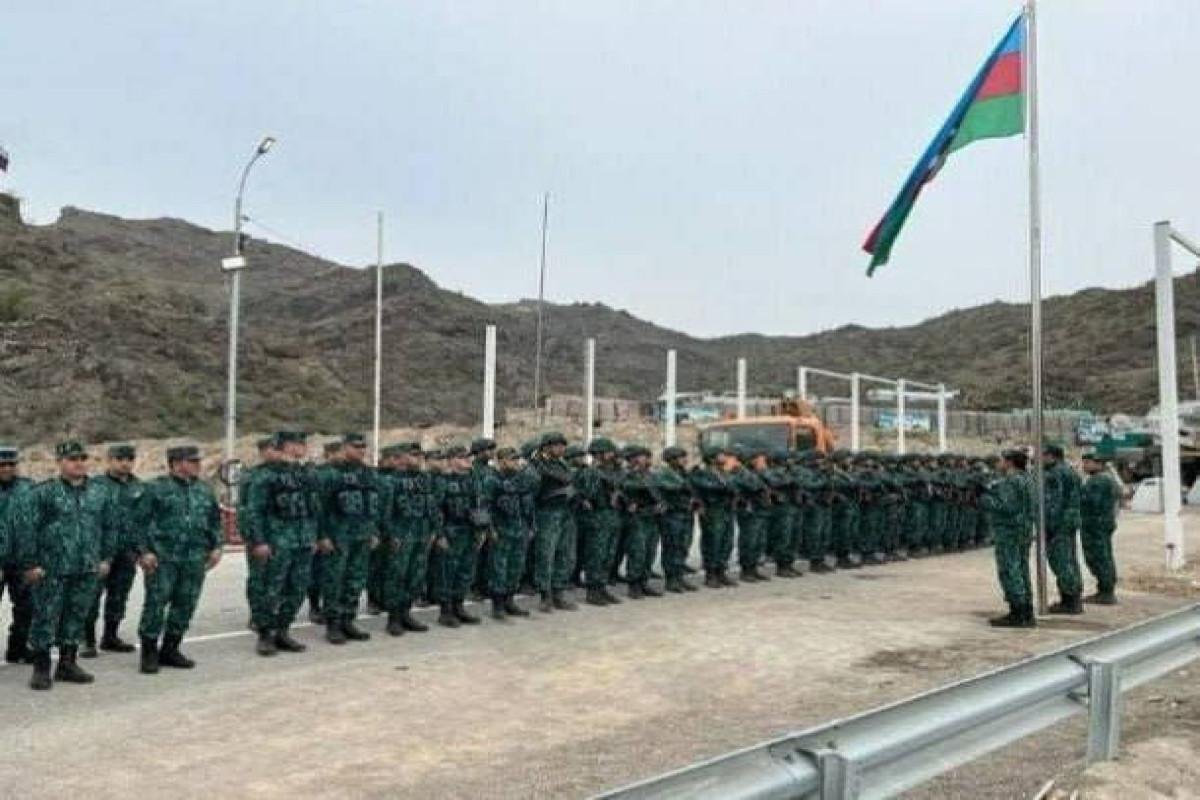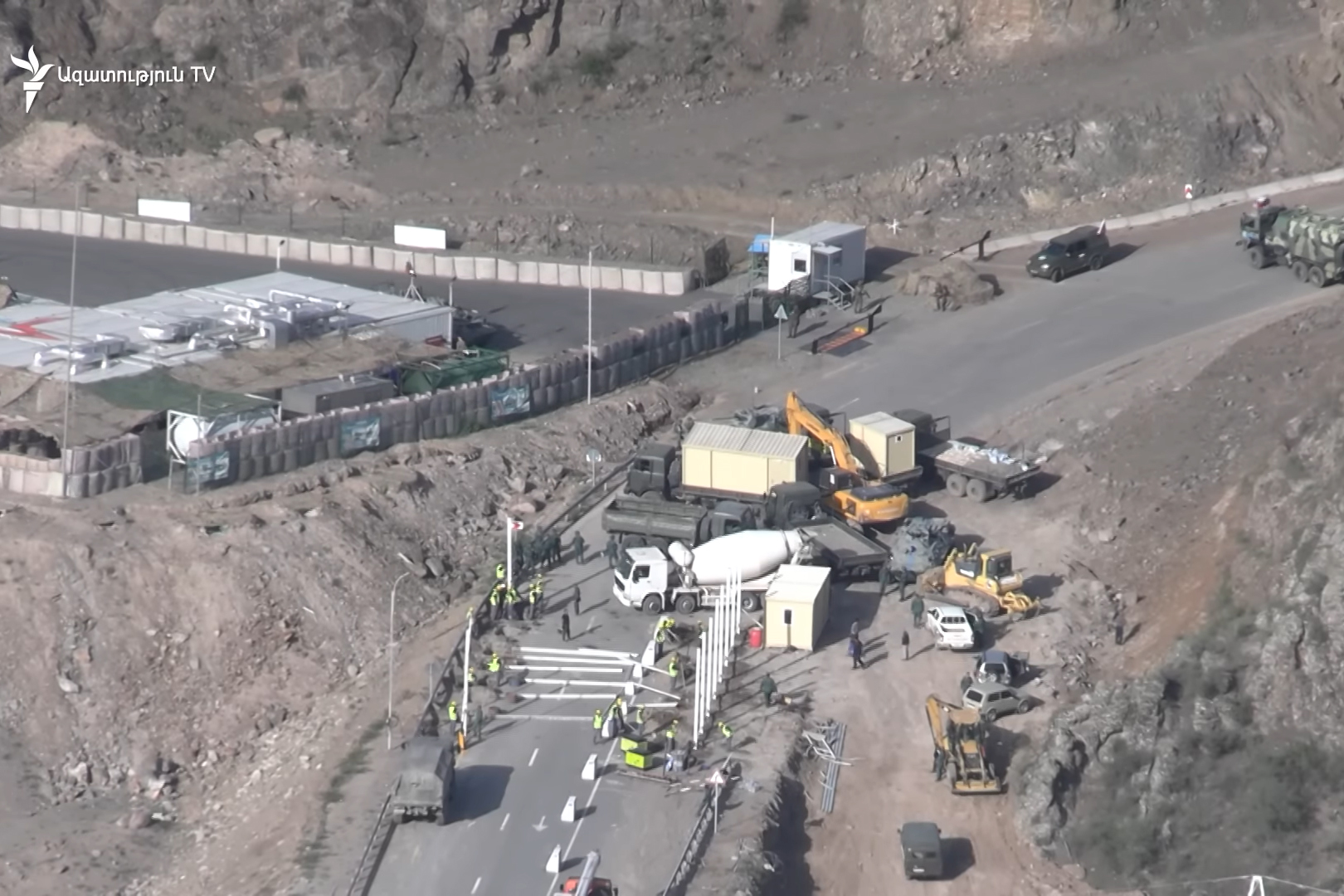
The Parliamentary Assembly of the Council of Europe’s rapporteur on the Lachin Corridor blockade has announced his intention to visit the area, following the erection of an Azerbaijani checkpoint.
Paul Gavan, who was appointed the ‘rapporteur on addressing the humanitarian consequences of the blockade of the Lachin corridor’, in mid-March made the comments on Monday, a day after Azerbaijan closed the corridor to install the checkpoint.
‘This unilateral action by Azerbaijan takes place amidst current increasing tensions around the obstruction of the Lachin Corridor, the only open communication route between the region of Nagorno-Karabakh and Armenia since 12 December 2022’, Gavan’s statement reads.
‘Azerbaijan alleges systematic and large-scale misuse of the Lachin road for illicit purposes, contrary to the [10 November 2020 ceasefire agreement], which it claims constitute security threats’, Gavan stated, adding that to ‘verify’ those claims there would be a need to ‘access the area’.
‘On the other hand, the suffering of the inhabitants in Nagorno-Karabakh, and the resulting serious humanitarian crisis, has already been well documented.’
Gavan plans to visit Armenia and Azerbaijan in late May.

According to the Moscow-brokered ceasefire agreement that brought an end to the Second Nagorno-Karabakh War, the Lachin Corridor was to be controlled by the Russian peacekeeping mission deployed to the region.
Foreign nationals, including journalists and representatives of international organisations, have been mostly barred by Russian peacekeepers from entering Nagorno-Karabakh since the end of the Second Nagorno-Karabakh. However, since Azerbaijanis claiming to be eco-activists blockaded the route in December, only the peacekeepers and the Red Cross have had access.
Armenia and Nagorno-Karabakh have repeatedly called for international fact-finding missions to be deployed to the region and to the Lachin corridor following the blockade.
Baku and Yerevan have not yet commented on Gavan’s statement.
Reactions to the checkpoint
Following the news of the erection of the Azerbaijani checkpoint, several Western countries have reacted, mostly condemning the checkpoint and calling for free movement through the corridor to be restored.
The US State Department stated that the checkpoint ‘undermines efforts to establish confidence in the peace process’ and called ‘on the parties to resume peace talks and refrain from provocations and hostile actions along the border’. EU High Commissioner Josep Borrell called Azerbaijan’s actions ‘contrary to the EU’s call to reduce tensions’.

The French Foreign Ministry too issued a statement on Monday, calling on ‘Azerbaijan to comply with its international obligations, particularly to implement the provisional measures indicated by the International Court of Justice in its order of 22 February, which are binding’.
The ruling by the ICJ ordered Azerbaijan to reopen the corridor, despite Baku’s insistence the blockade was being carried out by independent eco-activists.
Statements from Moscow were milder in tone, with the Foreign Ministry addressing ‘both sides’ and calling for negotiations. The Russian Defence Ministry stated on Monday evening that the installation of the checkpoint was ‘unilateral’ and was not coordinated with them.
[Read more: Azerbaijan closes Lachin Corridor to install checkpoint]








